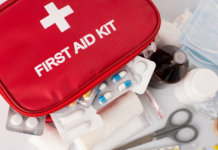Side Effects of Depression Medication
Depression is a serious health condition and its treatment requires medical attention. Although there are other methods of depression treatment, such as talk therapy, the use of antidepressant medications remains the most effective way of relieving depression symptoms. However, their use is not free of an array of unwanted side effects.
The Side Effects of Antidepressants
Antidepressants are a group of medications commonly used to treat depression. These drugs, however, do not address the causes of depression. Instead, they are used to treat the symptoms of this condition.
It is not completely understood how antidepressants work. The general idea is that antidepressants affect the levels of certain chemicals in the brain. These chemicals are called neurotransmitters. Antidepressants increase the levels of chemicals, such as serotonin and noradrenaline, the neurotransmitters associated with emotions.
Antidepressant therapy is usually a long-term treatment
The use of antidepressants is connected with various side effects. The most common ones are:
- Dry Mouth
- Diarrhea
- Constipation
- Loss of appetite
- Nausea
- Sleepiness
- Insomnia
- Dizziness
- Headaches
- Decreased sexual desire
- Weight gain
- Excessive sweating
- Serotonin syndrome
- Hyponatremia
- Suicidal thoughts
Now, let’s take a more detailed look at some of the most severe side effects.
Insomnia
In some cases, antidepressants can cause a disturbance of sleep. This is especially true for those antidepressants which affect the levels of serotonin and acetylcholine, the neurotransmitters with major roles in REM sleep initiation.
Insomnia is a common side effect of antidepressants’ use. It is characterized by difficulties with getting to sleep or staying asleep. The usual consequences of insomnia are fatigue and daytime sleepiness.
These are some good self-help tips for those suffering from insomnia:
- Try taking your medication in the morning
- Avoid caffeine
- Get more exercise
- Consult your doctor about other sedating medications which might be helpful
Weight Gain as a Side Effect of Depression Medication
Weight gain can occur under this treatment. However, not all patients experience weight gain. Some research indicates that the weight gain is possibly a consequence of the individual’s depression, causing him or her to overeat and stay inactive.
Some antidepressants such as Nardil, Remeron, Paxil, and Tofranil are considered more likely to cause weight gain. Other factors which can lead to weight gain during depression treatment are:
- The increased appetite (sometimes caused by antidepressants)
- Improved mood
- Aging
Controlling the weight during depression treatment is more challenging but is not much different from watching the weight in other circumstances.
Increasing the activity levels and eating a balanced diet are the best ways to maintain a healthy weight. If you believe that the medications you are using are a direct cause for weight gain, consult your doctor about the possible alternatives.
Serotonin Syndrome
Serotonin syndrome is a common name for a group of rare but serious side effects associated with the use of SSRIs and SNRIs.
These antidepressants alter the serotonin levels in the brain
In some cases, when these levels become too high, symptoms such as confusion, shivering, muscle twitching, sweating, and agitation can appear.
The experience of any of these symptoms is a clear indicator that you should stop taking the medication. In an uncommon scenario of extremely high serotonin levels, the severe serotonin syndrome symptoms such as arrhythmia, seizures, and unconsciousness can occur. Such symptoms require emergency medical assistance.
Hyponatremia
The use of SSRIs can sometimes affect the levels of fluid and sodium in the body. This happens when SSRIs blocks the hormone which regulates these levels. The common consequence is a drop in sodium levels, a condition called hyponatremia.
Hyponatremia usually affects elderly people who are using antidepressants
With the already impaired ability to regulate fluid levels, due to their age, older people are more likely to experience the build-up of fluids inside the cells because of hyponatremia.
Depending on its severity, this condition can cause symptoms such as:
- Reduced appetite
- Muscle pain
- Headaches
- Nausea
- Confusion
- Disorientation
- Psychosis
- Seizures
- Apnea
- Coma
Hyponatremia is usually treated by intravenous infusion of a sodium solution.
Suicidal thoughts
Suicidal thoughts are rare but is one of the most serious side effects of antidepressants use. Younger people are more likely to report suicidal thoughts or a self-harm desire during depression treatment.
This symptom should be taken very seriously and people who experience suicidal thoughts should seek medical help immediately.
The Final Word
Depression treatment can be a complex combination of different types of therapy. In most cases, antidepressants are the fastest and the most effective way of relieving depression symptoms. However, the use of these medications is associated with certain side effects which are often not properly addressed.




